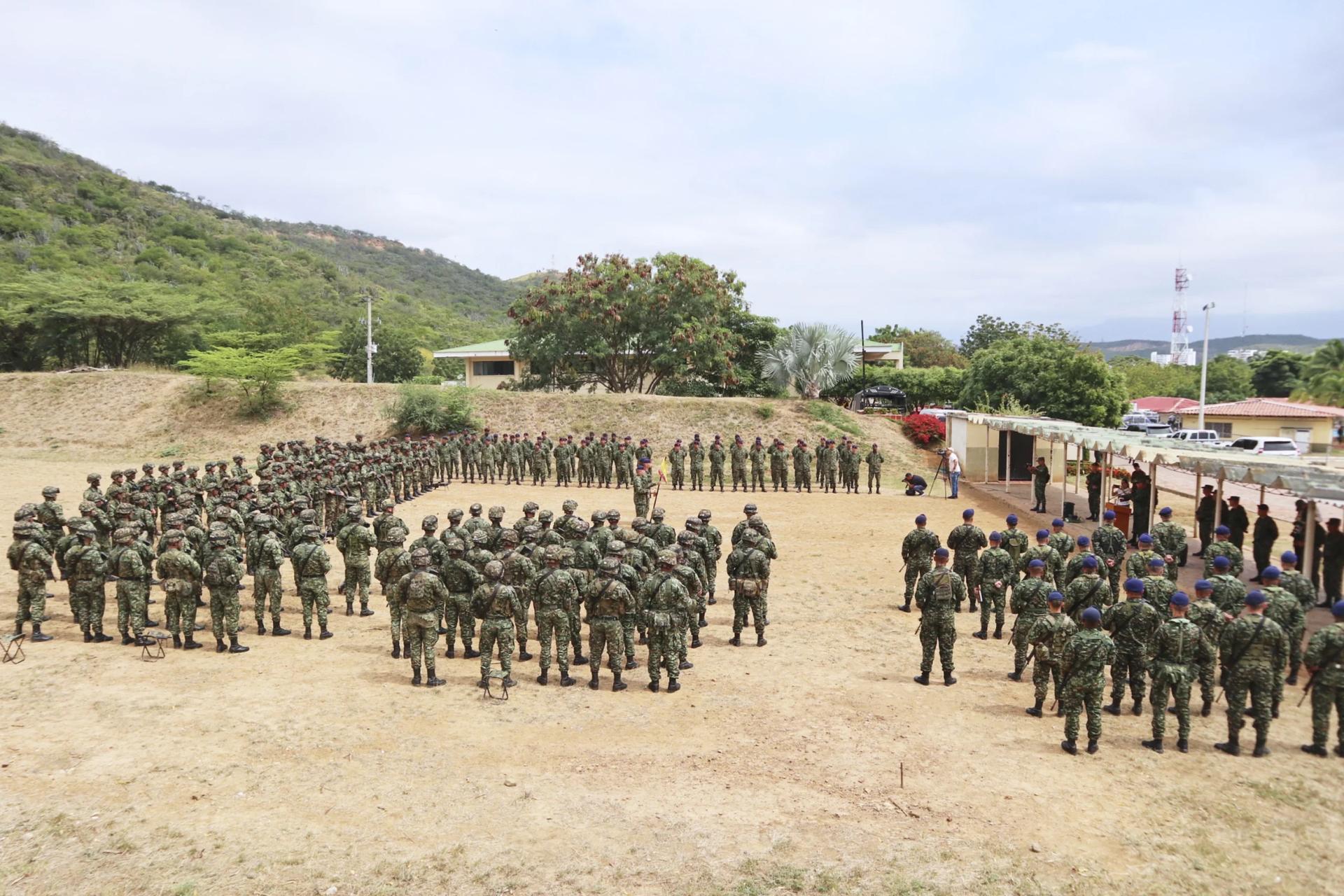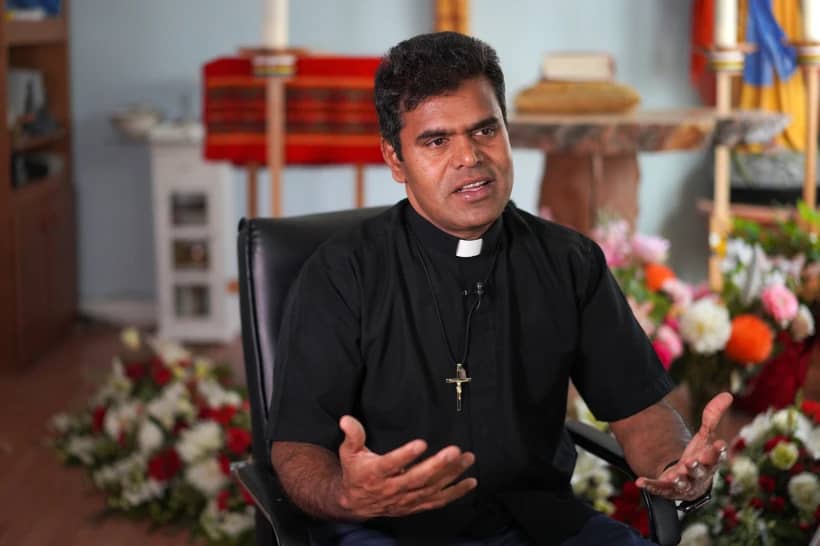SÃO PAULO, Brazil – Videos of police agents and Prosecutor’s Office’s investigators who were kidnapped months ago by a major Colombian guerrilla group, released last week by magazine Semana, not only gave hope to their families, but also put pressure on President Gustavo Petro for their release.
Some tension was also directed to the South American country’s Catholic Church, which was mentioned by one of the victims as one of the organizations that should hurry up and act for the prisoners’ freedom.
Jesús Pacheco and Rodrigo López, two members of the Prosecutor’s Technical Investigation Corps, were taken by guerrillas of the Eastern War Front of the National Liberation Army (ELN) on May 8, in Arauca department. Patrolman Yordin Pérez and sub-lieutenant Franki Hoyos, a criminal investigator, were taken by the same group on July 20.
In the videos, they ask the government, especially Petro, to meet ELN’s demands and promote their release. Pérez, for instance, emphasized he has been kept in captivity for almost 4 months and accused the president of not caring about their situation.
“I want to ask the national government, under the leadership of the President of the Republic, the Attorney General, the Police’s director, the Ombudsman’s Office, the United Nations, the Catholic Church, to please accelerate the procedures for our release,” he said in the recording.
After that, Pérez spoke to his parents and his sister, telling them that he’s fine and “waiting for an answer from the national government, [waiting for it] to accelerate [the process], to negotiate with ELN.”
Hoyos and Pacheco also urged Petro’s administration to act fast. Pacheco complained about health issues – mentioning high blood pressure and gallbladder problems – and emphasized that the “ELN presented some proposals and we’ve been waiting for you.”
The guerrilla organization, the largest one in activity in Colombia, stated the four agents will be submitted to a “revolutionary trial,” facing prison sentences ranging between 3 to 7 years. The group claims that it promotes a “differentiated justice” and that the prisoners will be able to exchange letters with their families.
Arauca has been impacted by a continuous armed conflict between the security forces, drug trafficking gangs and guerrilla groups, especially ELN’s Eastern War Front and dissidences of the Revolutionary Armed Forces of Colombia (FARC). The organization laid down their arms in 2016, but segments of it didn’t accept the peace agreement and kept mobilized.
The continuous violence of the left-wing guerrillas represent a major blow for Petro, who pledged during his campaign that he would promote peace deals or submit to justice all armed groups in the country, including right-wing paramilitary organizations and drug cartels.
The first left-wing politician ever to be elected Colombia’s president and he himself a former member of a guerrilla group, Petro began negotiating with the ELN at the end of 2022.
The conversation table included several delegates from non-governmental organizations who acted like observers and peace brokers. One of them was Father Hector Henao, who has been representing the Bishops’ Conference for decades in peace dialogues.
The process couldn’t advance as the government – and the Church – desired, due to demands presented by the ELN that the government didn’t accept. At the same time, violent incidents involving the organization would frequently interrupt the negotiations.
In January of 2025, the peace talks were finally cancelled, after the ELN and dissidences of the FARC clashed in the region of Catatumbo, near the Venezuelan border, and caused around 30 deaths in a single day.
“The episcopal conference permanently participated in the now interrupted negotiation process with the ELN. While at this moment there’s no table of dialogue, the Conference has been very active in dealing with humanitarian issues related with the impacts of such group’s activity,” Henao told Crux.
He said that the Church has been “attentively collaborating with the goal of allowing the police and Prosecutor’s Office’s agents to go back to their homes.”
Everything that the Church has been doing is to build bridges to allow solutions to be found anytime soon for the current problems, he added.
“Of course, the Diocese of Arauca has been following that crisis closely, while we keep trying to establish channels of communication,” Henao added. The Diocese of Arauca refused to talk with Crux about the subject.
According to Diego Arias, an analyst of matters related to conflict and peace in Colombia, Petro’s project of “total peace,” despite its failure, was not a bad idea.
“Historically, part of the problem was to negotiate with a group and forget about the others. Violence would never stop at a given moment. Negotiating with all at the same time is the correct plan,” he told Crux.
But Petro’s administration apparently had wrong strategies. The armed groups always had some kind of advantage during the peace talks.
“The government always failed to take the lead during the conversations. It was a matter of naivety and weakness. Reality, in political and military terms, was favorable to the armed groups,” Arias added.
Petro’s tenure will end in August of 2026. Nobody thinks he will achieve anything close to the “total peace” he envisioned. In fact, he has already admitted that he wasn’t able to do so.
Nine peace processes keep being active at this point. Arias said that Petro may have some success in only two negotiations – with the so-called Comuneros del Sur, an ELN dissidence, and with another FARC dissidence in the Southern part of Colombia.
“With the other organizations, there’s no possibility of making progress in Petro’s administration nor in the next one,” Arias claimed.












